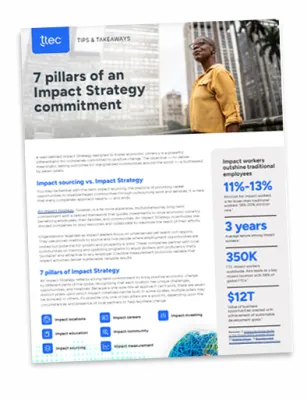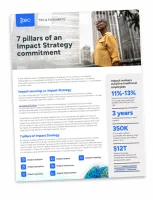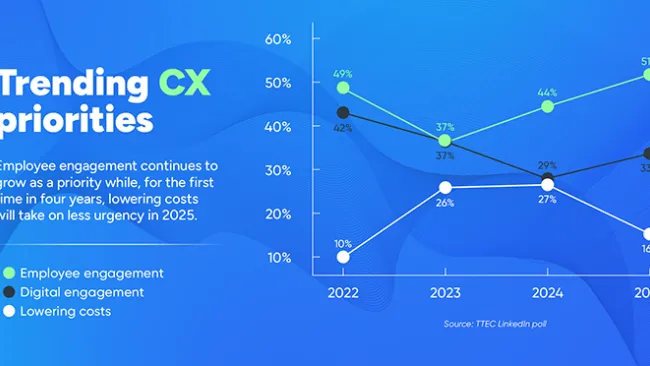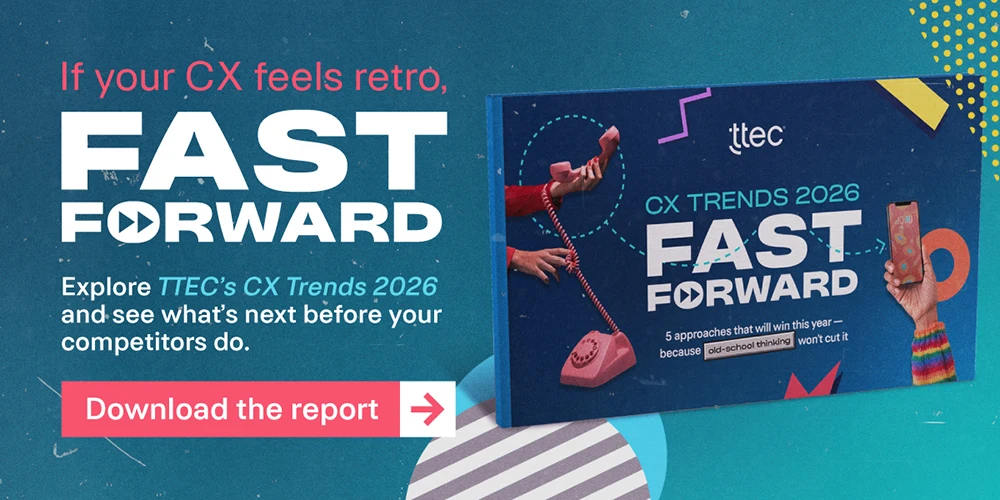Satisfied customers are a brand’s bread and butter, and giving them the best possible experience is a top priority. But some companies may be overlooking a useful ally that can significantly help in that mission: the human resources team.
HR is a valuable tool companies should tap into more often, experts say, because the department has a huge impact on customer experience. HR often hires the employees who will directly serve customers.
A brand’s customer experience, therefore, is tied directly to its employee engagement, says Aimee Lucas, customer experience transformist and vice president at Temkin Group, a customer experience research company.
“Employees design experiences, deliver experiences, and fix experiences for customers when things go wrong,” says Lucas. “A company is not going to have engaged customers if they don’t have engaged employees.”
Against that backdrop, companies that are passionate about acting in the customer’s best interests should make concerted efforts to integrate their HR teams into the overall customer experience strategy, she says.
HR and CX teams are logical partners, says Lucas. An end user’s experience using a product or service depends in large part on interactions with various brand employees. Employees who embrace the brand’s mission and culture are more likely to deliver great customer experiences than those who feel detached from the brand.
“The HR team is well-positioned to be a key contributor to helping the company become more customer-centric,” Lucas says. “They have the expertise and ‘own’ many of the existing business processes that align employees to the company’s goal of becoming more customer-centric.”
HR should be involved in training employees with new knowledge and skills, preparing middle managers to give coaching around customer-focused behaviors, tweaking the performance management program to reflect CX goals, and rewarding employees who do the right things, she adds.
HR also inherently has a major impact on CX strategy through its hiring practices, says Blake Morgan, a customer experience futurist and author of the book, More is More. Hiring the right people ensures the right message and tone are presented to customers.
“The people who you hire in your contact center and frontline stores will be the actual face of your brand,” she says. “Does your frontline staff actually like your product or service? Are they eager and excited to serve customers? Do they have the right attitude? These are important factors because your brand has so few opportunities to build relationships with customers that when they are actually in the store, on the phone, or even on your social media channels, you need your staff to engage them in the right way.”
The core functions of HR—hiring, developing, and recognizing employees—can help a company reach its goals by performing those duties with CX continuously in mind, according to ClearAction. The California-based customer experience management consulting firm examines the relationship between HR and CX in a blog post on its website.
“HR can make a difference in the company’s CX results by seeing their work within the bigger picture of external customers’ needs, and by helping executives establish a customer-focused big picture in strategy and culture,” it says. “With people at the center of customer experience, HR is a critical cog in the wheel of CX management.”
Ingraining HR into CX efforts may entail a broader culture shift, which could seem daunting to some. But a growing number of brands are doing it with great results, says Morgan, who names Ritz-Carlton, Zappos, Nordstrom, and Disney among some of the most successful.
“These are companies that have intentionally written down a mission statement and set of values, and everything is evaluated with these ideas in mind,” she says. “It’s important that the C-suite and executive team embody these values because, generally, all other employees reflect the behavior of the executive team. Culture has a trickle-down effect.”
Get down to business
To start, HR teams should view their roles in a CX context, thinking about what they can do to support what customers expect from the company, according to ClearAction.
Research has shown that brands benefit when their HR and CX teams work together, according to Lucas. Brands at which an HR group is significantly involved in CX efforts are four times more likely to deliver customer experiences that are significantly above their industry average, she says.
Temkin Group recently conducted research among 300 HR professionals and found many have a growing belief that their companies need to be more customer-centric. Those polled also reported higher levels of participating in this change: 31 percent said they are significantly helping their organizations become more customer-focused, up from 15 percent four years ago.
“There is certainly room for more HR involvement,” says Lucas, “but at least things are moving in the right direction.”
For those willing to take on the challenge, there are various ways HR and CX can work together and tap into each other’s expertise, Lucas says. One common way is for the CX team to include HR in its governance model, as a member of a steering committee who works with cross-functional teams to advance the company’s CX strategy.
Some companies also opt to create a dedicated HR liaison to serve as the primary point of contact for the CX team. In those instances, Lucas says, the CX team and HR liaison meet regularly, review their shared priorities, and identify ways to work together.
Though integrating HR and CX can greatly benefit companies, experts warn the synergy also brings some potential roadblocks.
“One major challenge is resources,” says Morgan. “It might take more time and more resources to hire and develop people who fit the mission and values of the company. If the company only cares about quarterly profits, and will do anything for the sake of productivity, you will generally see this in the type of people hired.”
Asked what prevents them from becoming involved in the company’s CX efforts, many HR professionals point to “other competing priorities” as the biggest obstacle, says Lucas, while others say the CX team has not engaged HR.
Some HR teams may also have a strong sense of what their roles and responsibilities traditionally have been, and they may need some coaxing or coaching to take on new endeavors, says ClearAction on its site.
Even so, Lucas says, HR officials say “not having enough time” is becoming less of a roadblock, Temkin Group research has found. When asked to do so, HR professionals are becoming increasingly willing to work toward furthering CX goals.
“It’s really on the company to make it a priority, and for the CX team to engage HR in creating a more customer-centric culture,” Lucas says.















